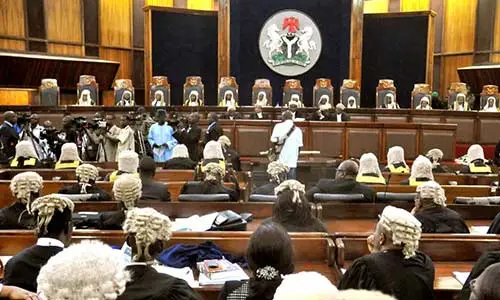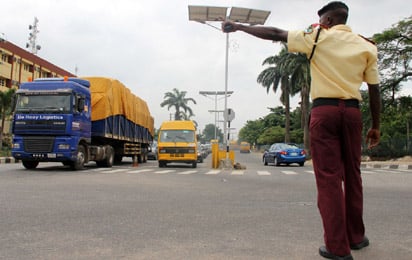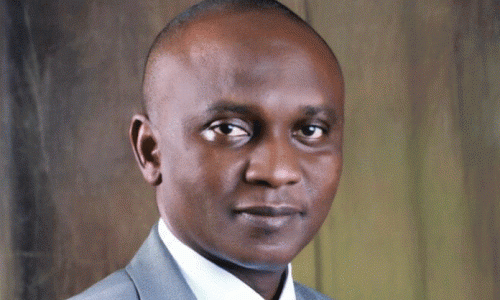COVER STORY SUPREME COURT JUDGEMENTS 08/11/2022
Supreme Court’s Original Jurisdiction In Disputes Between The President And National Assembly

In the Supreme Court of Nigeria
Holden at Abuja
On Friday, the 24th Day of June, 2022
Before Their Lordships
Musa Dattijo Muhammad
John Inyang Okoro
Amina Adamu Augie
Mohammed Lawal Garba
Abdu Aboki
Ibrahim Mohammed Musa Saulawa
Emmanuel Akomaye Agim
Justices, Supreme Court
SC/CV/504/2022
Between
- THE PRESIDENT, FEDERAL REPUBLIC OF NIGERIA
- ATTORNEY-GENERAL OF THE FEDERATION PLAINTIFFS
And
- NATIONAL ASSEMBLY
- THE SPEAKER, RIVERS STATE HOUSE OF ASSEMBLY
- ATTORNEY-GENERAL, RIVERS STATE
(Joined pursuant to Order of Court on 19/05/2022) DEFENDANTS
(Lead Judgement delivered by Honourable Emmanuel Akomaye Agim, JSC)
Facts
The Electoral Act 2022 took effect on 25th February, 2022, when the same was assented to by the 1st Plaintiff. On 19th April, 2022, after participating in making the Electoral Act 2022, the 1st Plaintiff sought to have Section 84(12) of the Act removed or deleted on the ground that while giving his assent, he had entered a caveat expressing reservations about the constitutionality and desirability of the said Section 84(12) and followed same by writing a letter to the 1st Defendant requesting it to cause the Electoral Act 2022 to be amended to delete the said Section 84(12) of the Electoral Act.
Following the refusal of the 1st Defendant to grant the request, the Plaintiffs filed an Originating Summons at the Supreme Court, invoking the original jurisdiction of the court, to determine various questions regarding the consistency or otherwise of Section 84(12) of the Electoral Act 2022 with the Constitution of the Federal Republic of Nigeria, 1999 (as amended). In their subsequently Amended Originating Summons, the Plaintiffs sought inter alia, a Declaration that Section 84(12) of the Electoral Act, 2022 disqualifying a political appointee from being a voting delegate, or being voted for at a convention or congress of any political party for the purpose of the nomination of candidates for any election is discriminatory and inconsistent with the provisions of the Constitution, and hence, null and void by reason of its inconsistency. They sought an order nullifying the provisions of Section 84(12) of the Electoral Act, 2022 by application of the blue pencil rule, on the ground that it is unconstitutional, illegal, null and void, and was made in excess of the legislative powers of the 1st Defendant as enshrined in Section 4 of the 1999 Constitution.
On its part, the 1st Defendant filed a Counter-Affidavit and a written address in opposition to the Amended Originating Summons. The 1st Defendant also filed a Notice of Preliminary Objection, challenging the competence of the suit and the jurisdiction of the Apex Court to entertain the suit.
Also, in opposition to the Amended Originating Summons, the 2nd and 3rd Defendant filed a Counter-Affidavit and written address. They also filed a Notice of Preliminary Objection, challenging the competence of the Amended Originating Summons.
Among the grounds of the Defendants’ Preliminary Objections, was that the suit did not disclose or raise the existence of any dispute between the 1st Plaintiff and the National Assembly that could warrant the invocation of the original jurisdiction of the Supreme Court under Section 1(1)(a) of the Supreme Court (Additional Original Jurisdiction) Act, 2002. Another ground of their objection was that the 1st Plaintiff, having assented to the Electoral Act 2022, is thus, estopped from attempting to use the machinery of the court to undo what he had done by virtue of constitutional powers.
Based on the extant Rules of Court which made it incumbent on the court to first deal with Preliminary Objections before proceeding to determine the suit on the merits, if at all necessary, the Apex Court proceeded to first consider the Defendants’ Preliminary Objections.
Issue for Determination
The following sole issue was considered by the Supreme Court, in its determination of the objections raised by the Defendants:
Whether the suit as constituted falls within the ambit of Section 232(1) of the Constitution of the Federal Republic of Nigeria, 1999 (as amended), as well as Section 1(1)(a) of the Supreme Court (Additional Original Jurisdiction) Act 2002.
Arguments
Respective senior counsel for the Defendants argued similarly that, Section 1(1)(a) of the Supreme Court (Additional Original Jurisdiction) Act, 2002 only permits the invocation of the original jurisdiction of the Supreme Court, where there is a dispute between the President and the National Assembly which involves any question of law or fact on which the existence or extent of a legal right depends. Counsel contended that the suit as constituted did not disclose or demonstrate the existence of any legal rights of the Plaintiffs that had been violated or that is in danger of being violated by the 1st Defendant, or any cognisable dispute between the National Assembly and the office of the President which could warrant the invocation of the jurisdiction of the court.
They submitted that the issues raised and reliefs sought in the 1st Plaintiff’s Originating Summons are centred on the legal and fundamental right of the political appointees to vote and be voted for, and not any legal right accruing to the office of the 1st Plaintiff in any material particular. They argued further that, the jurisdiction of the Supreme Court cannot be invoked to amend any law validly made by the National Assembly in the exercise of the legislative powers granted to it by the Constitution. They contended further that the proper parties in any action where the original jurisdiction of the Apex Court can be invoked, are persons listed in Section 232(1) of the Constitution of the Federal Republic of Nigeria, 1999 as amended as well as Section 1(1)(a) of the Supreme Court (Additional Original Jurisdiction) Act, 2002, and the parties as constituted especially the 2nd Plaintiff are not among the persons listed, and so, cannot invoke the original jurisdiction of the court.
Conversely, senior counsel for the Plaintiffs submitted that there is indeed a dispute between the Plaintiffs and the 1st Defendant, as well as a reasonable cause of action in the suit which is the constitutionality or otherwise of Section 84(12) of the Electoral Act 2022, that the Supreme Court can validly assume its original jurisdiction to entertain and determine, to the exclusion of any other court. Relying on A-G BENDEL STATE vs A-G FEDERATION (1981) 10 SC 1, counsel for the Plaintiffs argued that the assent by the President to the Bill, cannot prevent the Court from declaring the Act a nullity, where applicable.
Court’s Judgement and Rationale
In determining the objections, the Supreme Court first considered the ground of the objections that the 1st Plaintiff cannot challenge the constitutionality of the Electoral Act 2022, having participated in making the Act. On this point, the Apex Court held that the President of Nigeria cannot invoke the judicial process to challenge the constitutionality, validity, correctness, desirability, justification of an Act of the National Assembly that he participated in making. Their Lordships held that the role of the 1st Plaintiff in making an Act of the National Assembly pursuant to Section 58 of the 1999 Constitution, consists of his signification that he assents or that he withholds assent to the Bill, when both Houses of the National Assembly have passed the Bill and reached an agreement on any amendment made on it and presented it to the 1st Plaintiff for assent. The Constitution did not provide for the involvement of the court by the 1st Plaintiff, after he has exercised his power under Section 58(4) of the Constitution one way or the other.
The Court held further that the 1st Plaintiff’s role in the law making process ceases after his signification of his assent or withholding his assent, and the only role the Constitution assigns to him after the law is made is to comply with it or enforce it. There is no room for him to exploit the power given to the courts to review the exercise of legislative powers by the National Assembly, a role he had exercised by virtue of Section 58 of the 1999 Constitution before the Bill became law, especially having consented to what the two Houses did by his assent. Also, his assent to the enactment of the Electoral Act 2022, operates to estop him from challenging the Act as invalid for any reason.
Having determined the first ground of the objections, the court proceeded to consider the ground of objection that the Supreme Court lacks the jurisdiction to determine the suit because there is no basis for the invocation of its judicial powers. The Court reproduced the provisions of Section 232(1) of the 1999 Constitution, which vests the Supreme Court with original jurisdiction in disputes between the Federation and a State or between States. The court reproduced the provision of Section 1(1)(a) of the Supreme Court (Additional Original Jurisdiction) Act 2002, which provided, in addition to the original jurisdiction conferred on the Supreme Court by Section 232(1) of the Constitution , that the Supreme Court would have original jurisdiction in any dispute between (a) the National Assembly and the President; (b) the National Assembly and any State House of Assembly; and (c) the National Assembly and the State, so long as that dispute involves any question of law or fact which the existence or extent of a legal right depends.
Relying on the foregoing provisions and the decision in A-G FEDERATION v A-G LAGOS STATE (2017) LPELR – 42679 (SC), their Lordships held that the original jurisdiction of the Supreme Court can only be activated by either of the parties named in the cited provisions, where the dispute involves any question, whether of law or fact, on which the existence or extent of a legal right depends. It does not extend to cover a situation that has no nexus with the civil rights and obligations of the Plaintiffs – A-G BENDEL STATE v A-G FRN & ORS. (1981) LPELR-605 (SC). It is glaring from the depositions in the affidavit in support of the Plaintiffs’ Originating Summons and the questions for determination and reliefs claimed for, that the suit was not brought for the determination of any question as to the civil rights and obligations of any of the Plaintiffs. It was not a personal suit of any of them to seek personal redress in respect of their personal rights and obligations, but one brought in their official capacities purportedly to safeguard and preserve our democracy and the rule of law. The Plaintiffs, who are not political appointees, have no legally enforceable right or justiciable dispute in relation to the questions raised for determination in the Originating Summons, that can be entertained by the Supreme Court in exercise of its additional original jurisdiction under Section 1(1)(a) of the Supreme Court (Additional Jurisdiction) Act, 2002.
Suit Struck-out.
Representation
L.O. Fagbemi, SAN with others for the Plaintiffs.
Dr Olukayode Ajulo with others for the 1st Defendant.
Emmanuel C. Ukala SAN and C. O. Njemanze, SAN with others for the 2nd and 3rd Defendant.
Dr Charles Mekwunye, SAN with others for NBA (Party interested and seeking to be joined)



